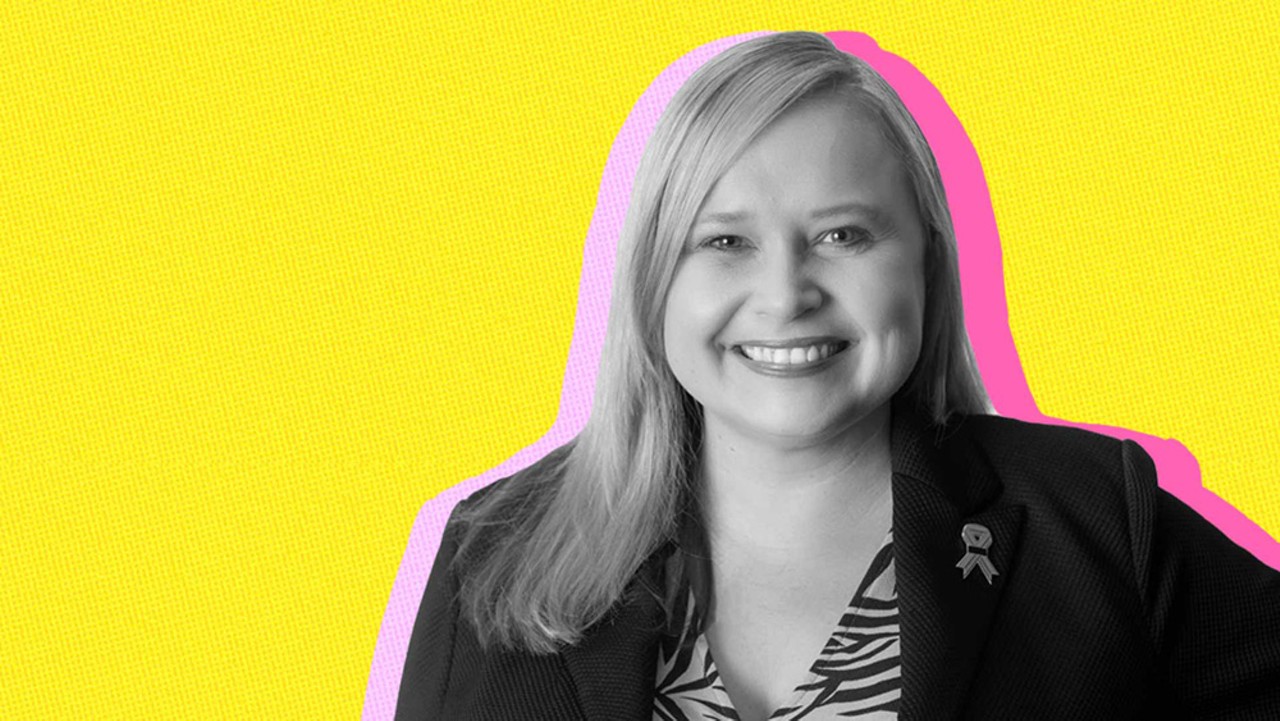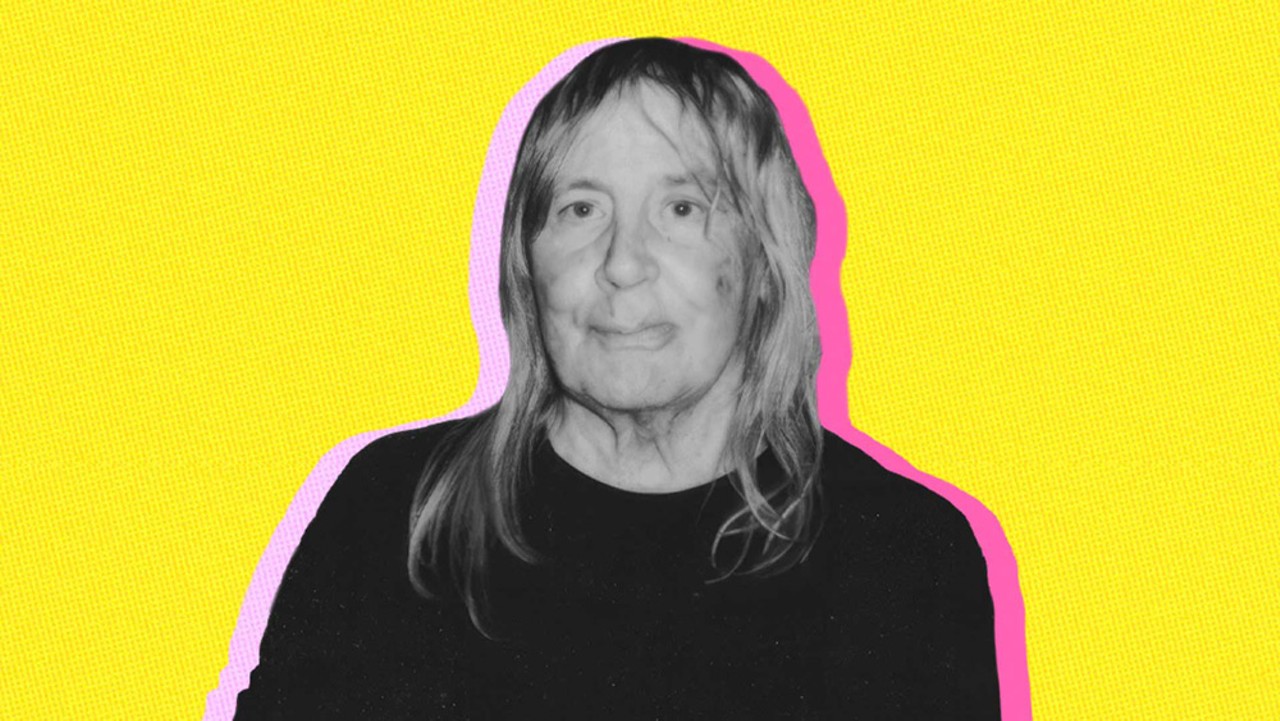People We Love: Justin Luper
If beloved sitcom Parks and Recreation had been set in Casselberry, Florida, rather than Pawnee, Indiana, parks department director Leslie Knope would have been spending her time on the arts, instead of catching possums and filling hummingbird feeders. To draw that dream out further, Knope's subordinate Tom Haverford, instead of being a swag-addled goldbricker, might be a little like Justin Luper, Casselberry's hard-working arts and marketing supervisor.
Pawnee and Haverford are fictional, but Casselberry and Luper are not — luckily for Orlando. (Although we'd watch that show.) Before overseeing the surprising awakening of the arts in that small Orlando-adjacent city, Justin Luper wasn't sure what he wanted to do — draw, write, design skateboard graphics — and like a lot of people, cycled through several different college majors, ranging from business to creative writing. After graduating from the University of Central Florida in 2008, Luper spent time playing in local bands, creating visual art, and working as an art installer at the Orlando Museum of Art, the Mennello Museum of American Art, and Rollins College's Cornell Fine Arts Museum. He created a downtown mural with fellow artist Adam Lavigne for 2017's Art in Odd Places, wrote and illustrated zines, started a vintage clothing company with his fiancée, worked with her on producing pop-up markets.
In 2020, he recommitted to his visual practice. "I was going full force 'I'm gonna be an artist.' I got my website up and running, I booked my biggest show so far, a solo exhibition at Mills Gallery, I got to a stopping point with the body of work, the paintings that I was doing for the solo exhibition and yeah, so ... COVID happened," Luper recalls. "COVID hit, everything shut down, and I was kind of just like, 'Well, what do I do now?'"
The loss of that solo show, and the sense of "what now, and why not something new?" that infected most of us in the pandemic, eventually led Luper to apply for a job with the City of Casselberry. The position, in, yes, the Parks Department, would oversee Casselberry's existing Arts House programming, reconceptualize its then-new Sculpture House, and be the guiding light leading the Arts Center when construction was finally finished.
Unlike the average curator's job, however (if there is such a thing), this role in a lean and mean city government required someone willing to wear many hats — not simply booking art shows but maintaining existing relationships with local arts groups, doing community outreach, writing and designing marketing collateral, working with budgets and more. In other words, a job that required a lot of disparate skills — a perfect fit for someone with experience in a lot of disparate fields.
Almost three years after Luper took on the arts position in Casselberry, it's clear that this was an auspicious hire. Casselberry's profile in the visual arts punches way above its weight as a bedroom community of 30,000, with a multi-facility arts complex to rival any in Central Florida. Luper has maintained the charming Arts House, which traditionally hosts shows from various local artists groups; implemented an updated vision at the Sculpture House, modernizing the mission by enlarging "sculpture" to include any three-dimensional art, including installation, audiovisual and temporal works; and inaugurated the shiny new Arts Center with an exhibition of national artists more rigorous than anyone would have expected. His hands-on knowledge of installing and displaying art has proven a boon for both the city and the artists trusting their work to the facilities; and his experience "on the other side," so to speak, has proven beneficial to communicating with those artists. Not to mention, his own artistic practice and the varied acquaintances he's made spending 17 years in the different pockets of Orlando's art scene(s) are catnip to younger, edgier artists who might not be drawn to exhibit in a small city gallery.
Luper fits all the pieces together gracefully, and we look forward to seeing his local career grow. We can think of at least one museum in this town that could take lessons on how to make a splash without sinking the boat.

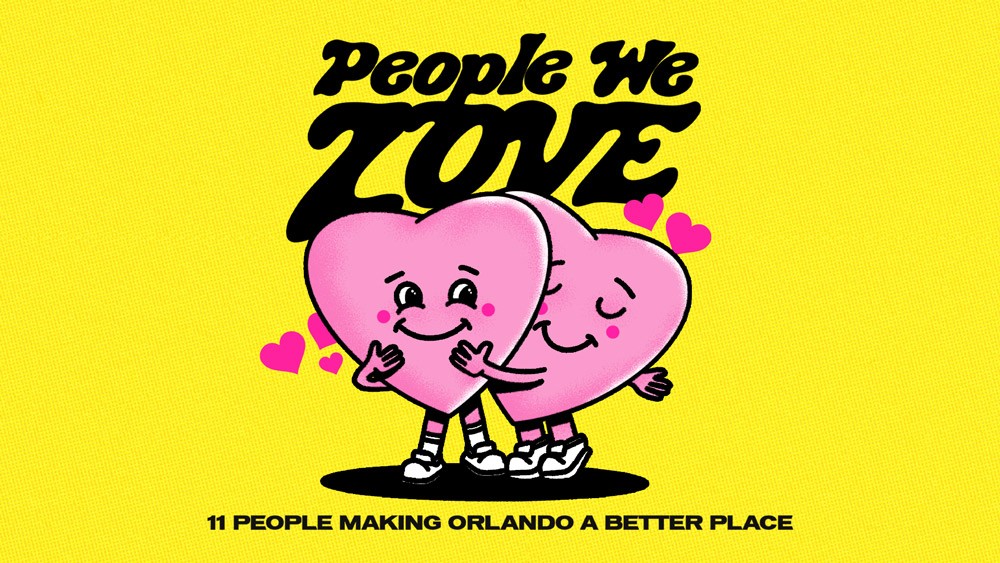
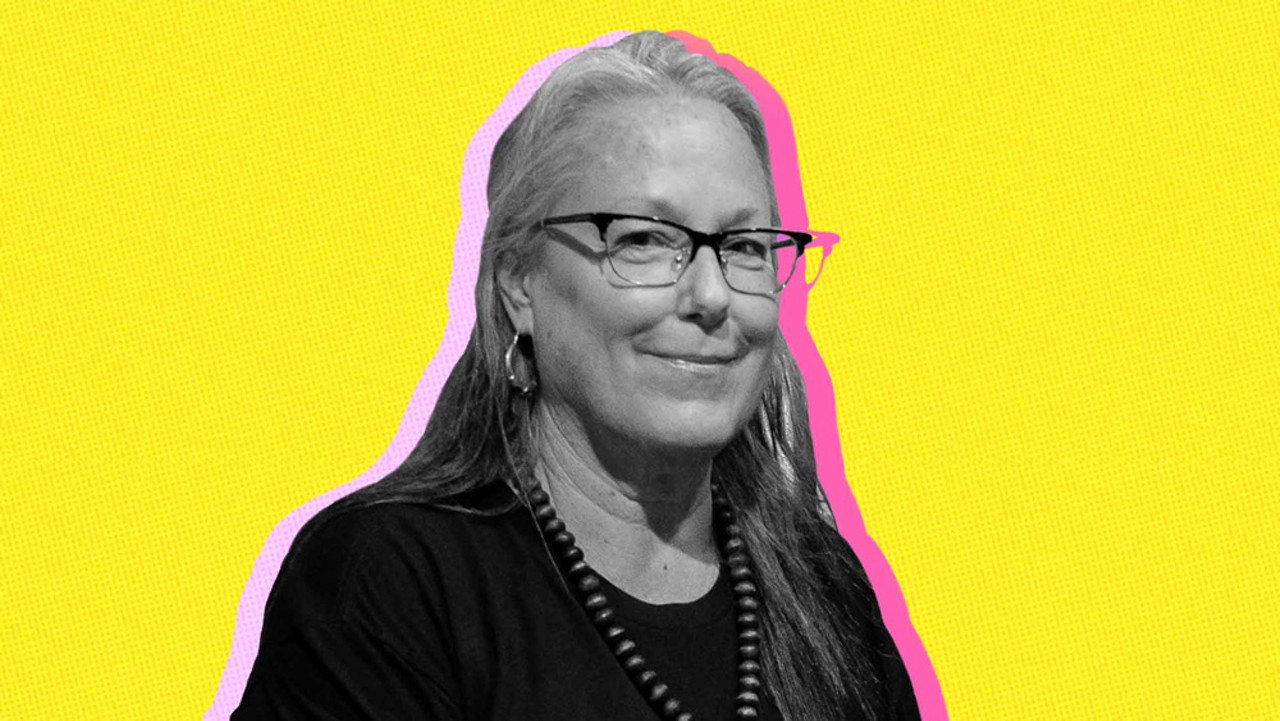
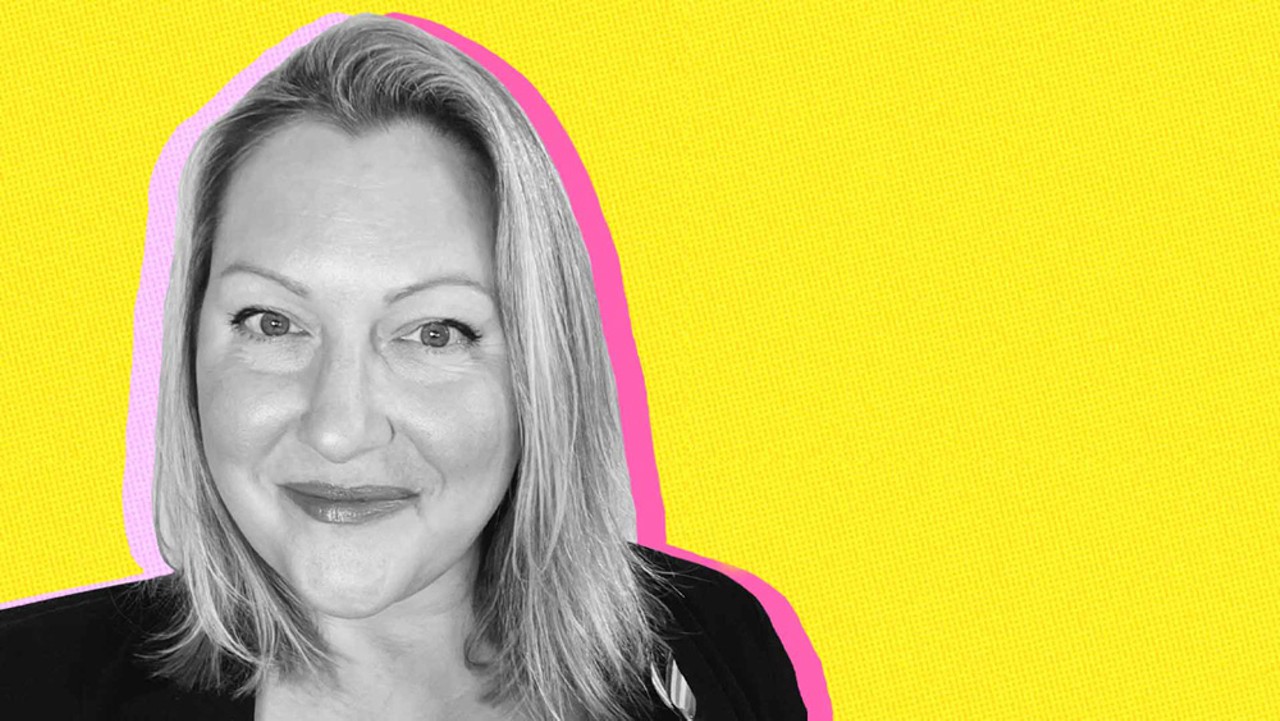
![People We Love: John Paonessa and Mike Rogier
John Paonessa and Mike Rogier never planned on opening Orlando's drag haven and restaurant Hamburger Mary's nearly 16 years ago. They also never imagined they'd be challenging the state of Florida all the way to the U.S. Supreme Court.
The partners in life and business didn't know each other when they separately moved to Orlando in 1986 — Paonessa was from New York, working in the car rental business; Rogier from Indiana, selling insurance.
They met in 1988, fell in love, and haven't looked back since. Work took them out of Florida, but eventually they returned to the Sunshine State, opening their own insurance agency in Fort Lauderdale. As serendipity would have it, their office was right by that city's outpost of the San Francisco-based Hamburger Mary's chain.
"We were familiar with the Mary's brand," remembers Paonessa. "The one in Fort Lauderdale at the time was their biggest store, and our agency was right around the corner from there." It was, as Paonessa says cheekily, "temporary insanity" that led the two to sell their agency, move back to Orlando, and open the beloved Church Street restaurant in 2008.
At the time, it was the only location the couple could find that was open to hosting a restaurant that featured drag performances. The first night of their soft opening, Paonessa says, they were steamrolled by the demands of running a restaurant. "I went home that night, and I held my dog and I cried, and I'm like, 'We made a terrible mistake. What did we do?'"
But 16 years later, Hamburger Mary's doors remain open. And now, perhaps in the same daring state of mind that led to the two opening Hamburger Mary's, Paonessa and Rogier are defending our fundamental freedoms — and winning. Less than a week after failed presidential candidate and Florida Gov. Ron DeSantis signed the state's drag ban, in May 2023 Hamburger Mary's filed a federal lawsuit challenging the state.
The lawsuit contends the law is a violation of the business' First Amendment rights. Not long after, the court issued an injunction on the statewide law, halting implementation. The state appealed that decision to the United States Supreme Court, which upheld the injunction.
The legal battle continues, and despite the injunction, the hateful rhetoric and state-sanctioned censorship has harmed the restaurant's business. Meanwhile, the Republican-gerrymandered legislature has forced forward a slew of bills targeting queer people's freedoms in the arenas of employment, education and healthcare. But Paonessa and Rogier remain determined.
"The lawsuit has affected revenues at Hamburger Mary's," affirms Paonessa, but "we are thrilled to be able to have taken the stand against the state and files the lawsuit. It was the right thing to do, and given the opportunity we'd do it again and again."
Paonessa and Rogier are not only people we love but after more than three decades together, the two remain very much in love with each other. "I wouldn't want to go through life with anyone else," says Paonessa. "[Mike's] been the rock for me, and me for him, through this whole thing. What doesn't kill us makes us stronger, and that's what it's done for us. And we're just thankful we have the love from the community."
Paonessa adds one last, crucial point: "We have no doubt we're going to win. Love wins every time."](https://media2.orlandoweekly.com/orlando/imager/people-we-love-2024-eleven-people-making-orlando-a-better-place-to-be/u/zoom/36180145/portraits_johnmike.jpg?cb=1707921246)
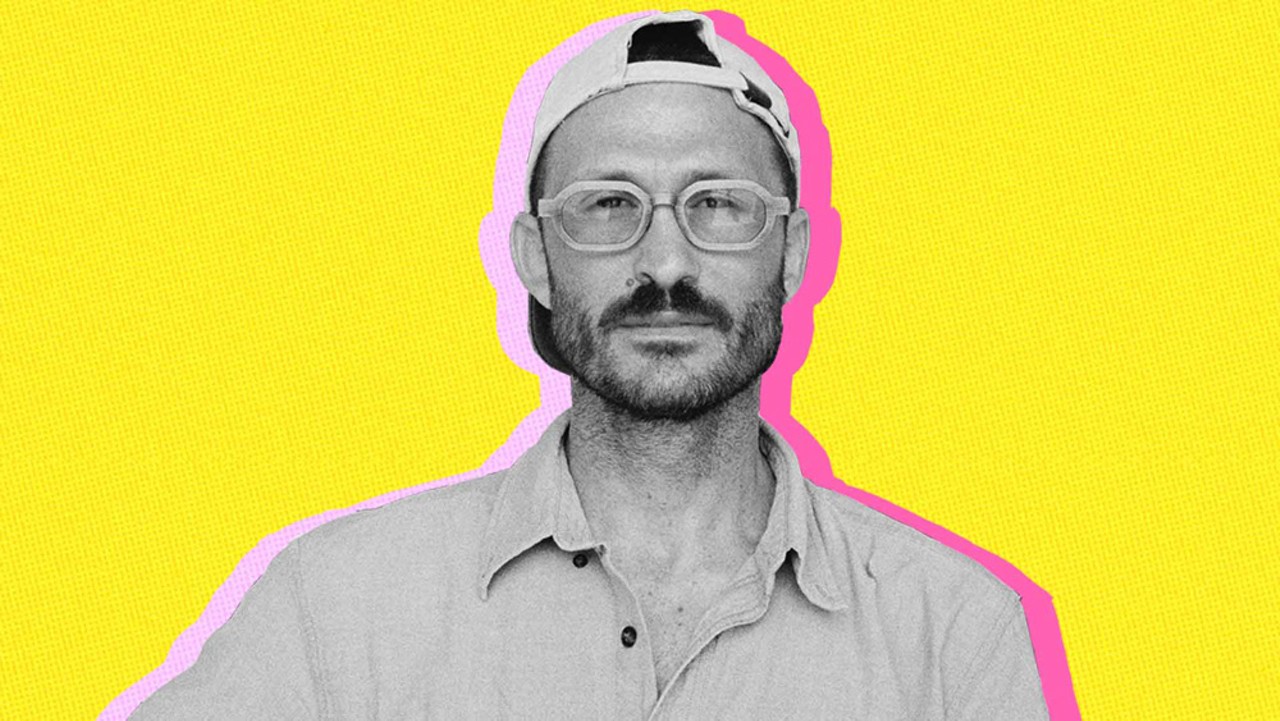
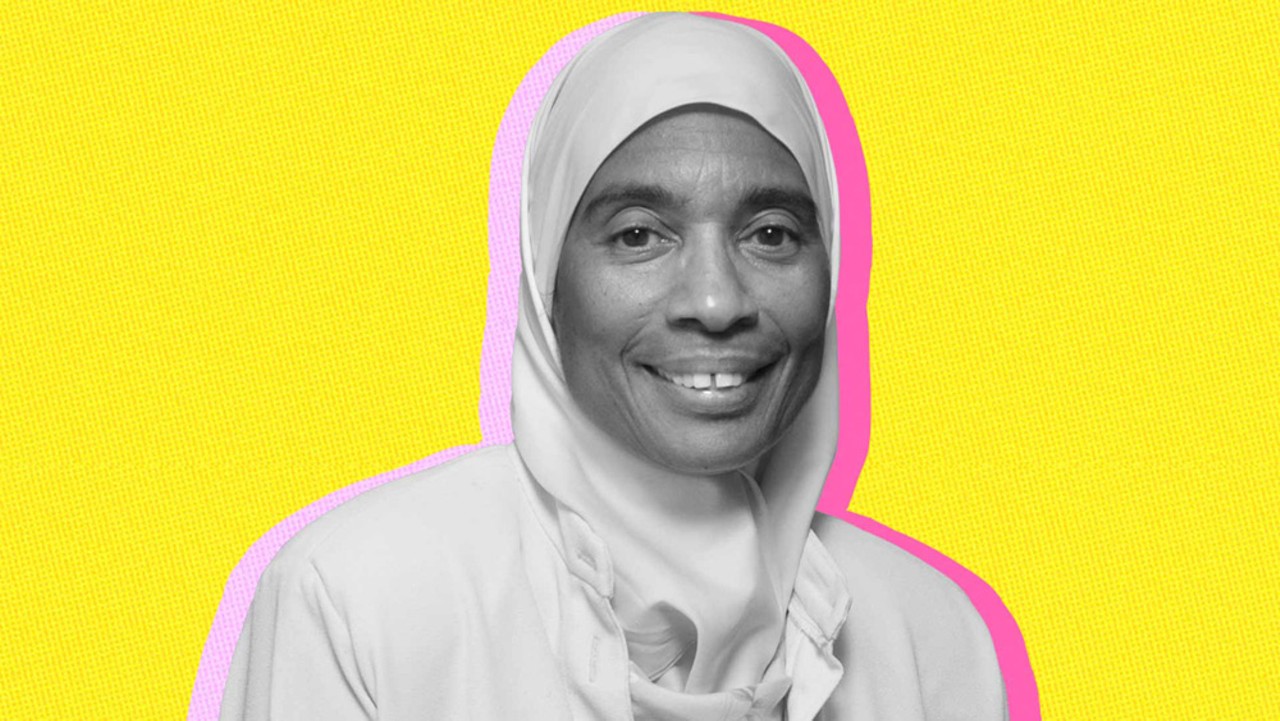
![People We Love: Harryson Thevenin
For years, we observed the maxim that if you saw Harryson Thevenin when you went out, then you picked the right event to attend.
Rap shows, skateboarding events, noise nights, art and fashion parties — Thevenin might be found at one (or more) on any night. That same wide-ranging sense of curiosity and adventure has informed his SR50 brand since its inception in 2017, when it started as a music blog documenting shows, became a means to connect seemingly disparate subcultures. The name came to him quickly. "State Road 50 goes from one end of the state all the way to the other end. And I figured that, starting a brand I could go across different genres that can be tied together in the same way that road crosses different parts of the state."
Thevenin's use of the word "brand" is instructive, because since its bloggy beginnings, SR50 has become, well, anything Thevenin and his collaborators want it to be: website, long- running zine, concert promoter, clothing line (including sportswear, sandals and tactical wear), film company. "I didn't see anyone [locally] doing the things we wanted to do. So I just thought, 'We might as well do whatever we want,'" says Thevenin, understatedly.
Crucial early inspirations for his work with SR50 include exposure to Orlando music touchstones like Wet Nurse and Total Bummer Fest, as well as designers Virgil Abloh and Balenciaga. In the last year or so alone, SR50 has released a line of tennis attire ("I wanted to start a fitness revolution," jokes Thevenin [maybe]), organized a rave, and hosted a Sept. 11 hardcore show at Uncle Lou's. This isn't about money or clout, this is pushing the multimedia freedom inherent in DIY.
That includes a willingness to walk away from ideas, particularly an ambitious plan to stage an SR50-sponsored 5K road race around the time of the recent Olympic trials. More successful was a recent collaborative skateboarding event and market at The Warehouse on Orange Blossom Trail. "It was cool to see the hip-hop community and the skate community come together on something mutual and everyone shakes hands about it at the end of the day."
The next SR50 actions are as eclectic as ever. They're planning a hardcore show at The S.P.O.T. that's also going to be the setting for a film: "It's all improvised dialogue. I introduce characters in previous scenes. And then the show brings them all together to this one location." And after that: a Formula One racing jacket, complete with satirical promo campaign featuring an electric go-kart. "Formula One's hot right now, it's really expensive," says Thevenin. "It's just funny to dip your toes in an industry that you have no business in."
Keeping up this level of prolific activity and motivation is no mean feat for a DIY enterprise, and the keys with SR50 are rooted in enthusiasm and collaboration.
"It's around the clock, honestly. I'm always working on something or learning about something and I'm like, 'All right, we can expand on it.' And I have a lot of people who help out. My friend Alex does all the graphics and flyers and logos. That's a big help," says Thevenin. "I'm just always hyped."](https://media2.orlandoweekly.com/orlando/imager/people-we-love-2024-eleven-people-making-orlando-a-better-place-to-be/u/zoom/36180142/portraits_harryson.jpg?cb=1707866171)
![People We Love: Johnny and Jimmy Tung
James Beard-nominated restaurateurs Johnny and Jimmy Tung oversee a sprawling empire of 35 restaurants, but do so in the most low-key way possible. In fact, we recently saw Johnny, the younger of the brotherly duo, serving bowls of udon and then busing tables at their new Mills 50 noodle joint, Zaru. The Tungs are as gracious as they are down to earth, and restaurant life helped shape their unassuming approach in running and developing their business.
"My brother and I grew up in restaurants," says Johnny. "I still remember sitting in the kitchen watching my daddy cook. I was just 4 years old, Jimmy was 8, but we eventually ended up doing everything from prepping and cooking to serving and tending to the buffet." That sort of grounding experience disposed the duo to shirk the spotlight and instead divert attention to the talented chefs they've come to nurture, support and invest in over the years — chefs like Domu's Sonny Nguyen, Kadence's Mark and Jen Berdin, Kaya's Lordfer Lalicon, The Foreigner's Bruno Fonseca, Camille's Tung Phan, Norigami's David Tsan, Doshi's Gene Kim and so many others.
"That's the way we were brought up," says Johnny. "Our parents immigrated from Taiwan. My dad told me that because we were minorities here, we had to learn to protect ourselves, work hard behind the scenes and fly under the radar to become successful. We were never brought up with that sort of 'me' mentality."
Indeed, in an industry dominated by attention-seekers, the Tungs are anything but. Their strategy is to partner with chefs and help realize their dreams — "assist them in the areas they felt they were weak at," as Johnny puts it. For some, that meant finding an appropriate location, negotiating a lease or proving financial credibility; for others it meant marketing their concept, instituting payroll systems or navigating through the legal aspects of the business. "I remember when we helped Sonny negotiate the lease for Domu at East End Market. I still have the photo of us shaking hands with [East End Market owner] John Rife."
And by being advocates and backers of Orlando's gifted culinarians, the brothers have reshaped the city's restaurant landscape in a way they couldn't have possibly predicted when they opened Bento Asian Kitchen + Sushi (then Bento Cafe) in Gainesville back in 2002. Six years later, the first Bento outside Gainesville opened in the Chase Plaza downtown. Now there are 21 locations across the state. But there came a point when the two had to decide what bearing, and complexion, their burgeoning restaurant empire would take — further ensconce Orlando as a chain-heavy metropolis, or steer it in a completely different direction? "Once we had kids, we asked ourselves, what do we want to be remembered for? Do we want to open more Bentos, which of course is great, or do we want to make an impact on the community? We knew we wanted Orlando to be the city where we put our roots in and raise a family in, so a focus on chef-driven and legacy-driven restaurants was an easy decision."
In the past decade, no one has done more to establish a new culinary rep for this city than the Tung brothers. Their reach is far and the long list of independent restaurants that have opened under their guiding hands is impressive — Kadence, Kaya, Camille, Zaru, Doshi, The Foreigner, Domu, Tori Tori, Norigami, Light on the Sugar, Danilo's Pasta Bar, not to mention the high-concept Sorekara by chef William Shen slated to open next month in Baldwin Park and Mills Market, a new food-and-retail hub that will supplant Tien Hung Market in the heart of Mills 50.
"Orlando is such a great city, and it's so underrated," says Johnny. "James and Julie Petrakis, Jason and Sue Chin, Norman Van Aken — they all paved the way for us to continue forging Orlando's new food identity, and Jimmy and I just want to make the sort of impact that Orlando will be proud of."
Mission accomplished.](https://media1.orlandoweekly.com/orlando/imager/people-we-love-2024-eleven-people-making-orlando-a-better-place-to-be/u/zoom/36180146/portraits_johnnyjimmy.jpg?cb=1707866172)
